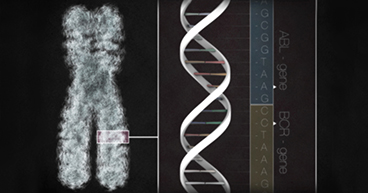
When Rhonda Bey retired at 61, she was looking forward to a life filled with family and travel. But cancer got in the way. At 64, Bey was diagnosed with a rare form of appendix cancer. Because no standard treatment options existed for her disease, her doctors at Cancer Treatment Centers of America® (CTCA) turned to advanced genomic testing to learn more about the mutations in her cancer cells. After examining a biopsied sample from Bey’s tumor, researchers discovered her cancer had a genetic features called microsatellite instability-high (MSI-H), mutations that make it difficult for damaged cells to repair themselves. Cancers with MSI-H may be responsive to immunotherapy.
During her immunotherapy treatment, Bey’s tumors shrank, and scans eventually showed no evidence of disease. The U.S. Food and Drug Administration has since approved the immunotherapy drug she used as a first-line treatment for patients with tumors that have MSI-H and/or another feature called mismatch repair deficiency (dMMR), regardless of the cancer’s location. Watch the video to learn more about how decoding cancer’s DNA helped Bey, and how it may help other cancer patients, too.



